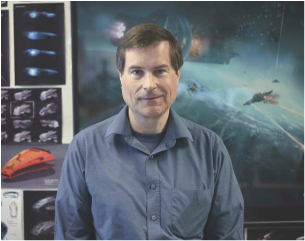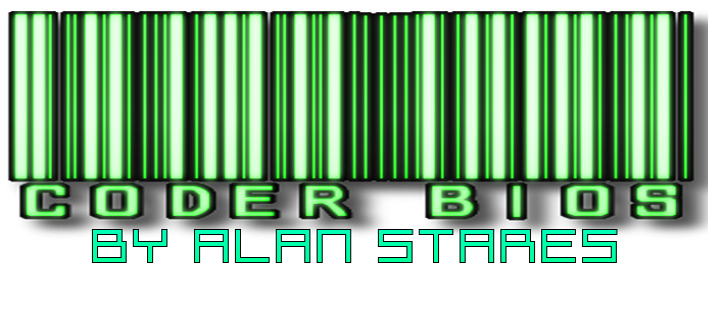
David attended Cambridge where he met Ian Bell and both became friends due to their mutual love of mathematics and games.
Elite was a challenge to see if they could get a fully working 3D game with realistic movement running on the old BBC Micro computer. They did and Elite was a smash hit and was later ported to all Z80 computers of the time and became a phenomenon.
In 1993 David went solo and made the sequel to Elite known as FRONTIER: ELITE II. The game featured new texture mapped graphics as well as an expanded universe and new a Newtonian physics engine for the ships flight.
David is active outside of the games world and in 2008 was an investor and non-exec director of Phonetic Arts, a speech generation company.
He is also a co-founder of Raspberry Pi.
David's latest venture is a continuation of his most famous legacy with the release of Elite: Dangerous a massive online multilayer game based on the concept of the original Elite. The game was Kickstarter funded and is now available to the public.
David has been the recipient of many awards over the years in and out with the gaming industry -
On 5 September 2005 he received the Development Legend Award and then in 2012 he was elected as a Fellow of the Royal Academy of Engineering.
David was also appointed Officer of the Order of the British Empire (OBE) in the 2014 Birthday Honours for services to the UK computer and video games industry and then in January 2015, he received that year's accolade for Pioneer, Game Developers Choice Award (GDCA), for his work on the Raspberry Pi and for working more than 30 years as a game developer.
David's most current award at this time was on the 12 March 2015 when he was awarded the BAFTA Academy Fellowship Award in video gaming at the 11th British Academy Games Awards.

